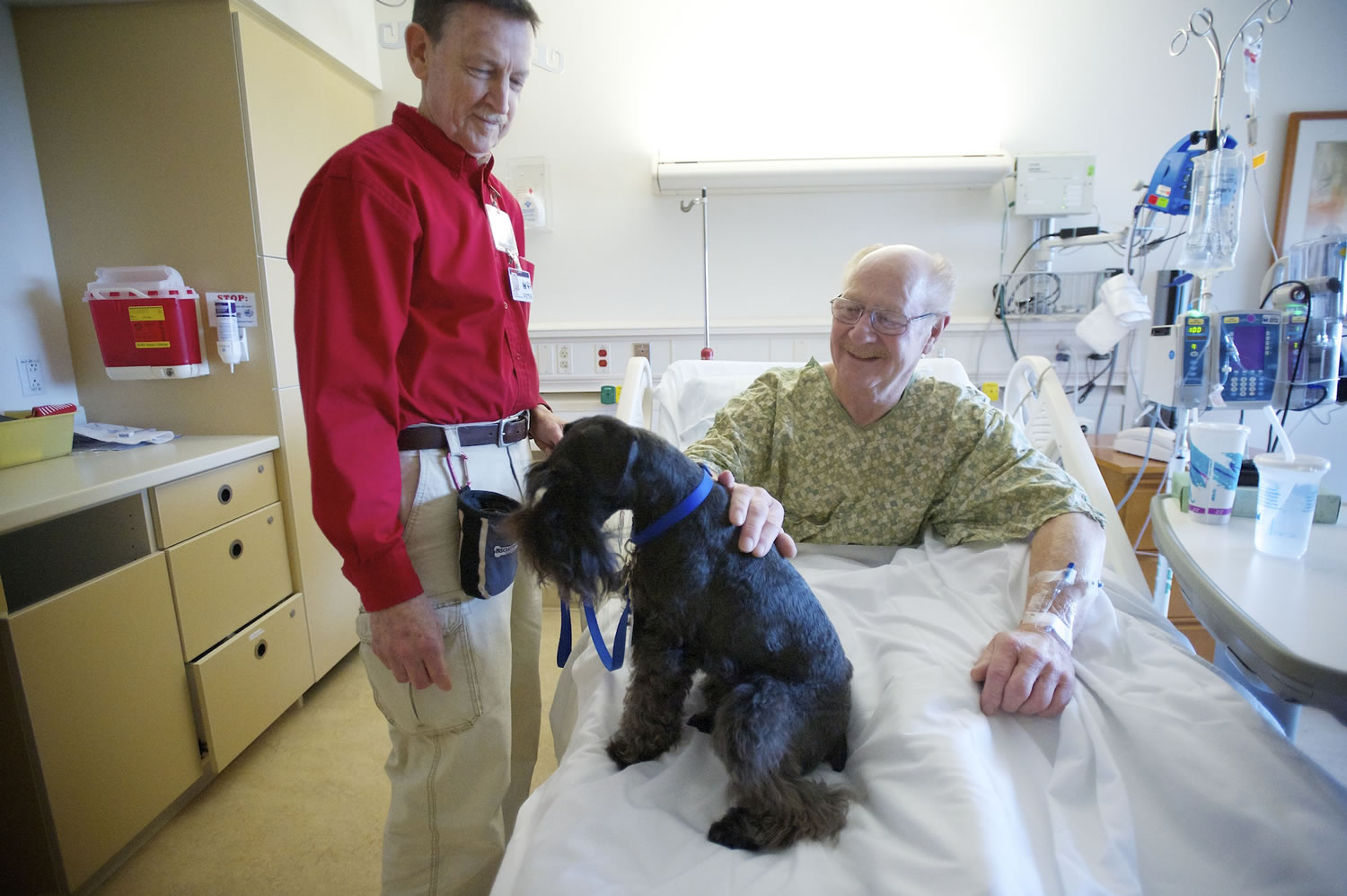Therapy dogs are not the same as service dogs.
A therapy dog is trained to provide affection and comfort to any number of people. Its primary job is to allow unfamiliar people to make physical contact with it.
A therapy dog handler has no special rights to be accompanied by their therapy dog anywhere that dogs are not generally allowed.
A service dog is trained to assist a person who has a disability. Because these dogs are trained to perform specific tasks, they are often known by names associated with their task, such as guide dog, hearing dog and seizure alert dog.
In accordance with the Americans with Disabilities Act of 1990, a person with a disability generally has the right to be accompanied by their service dog anywhere the general public is allowed.




